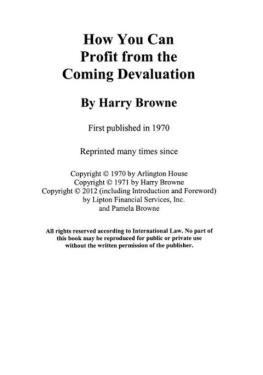THE STORY.
Table of Contents
On Sunday, June 12th, 1864, the U. S. Steamer Kearsarge was lying at anchor in the Scheldt, off Flushing, Holland. Suddenly appeared the cornet at the forean unexpected signal, that compelled absent officers and men to repair on board. Steam was raised, and immediately after a departure made, when all hands being called, the nature of the precipitate movement became apparent. Captain Winslow, in a brief address, announced the welcome intelligence of the reception of a telegram from his Excellency, Mr. Dayton, Minister Resident at Paris, to the effect that the notorious Alabama had arrived the day previous at Cherbourg, France; hence, the urgency of departure, the probability of an encounter, and the confident expectation of her destruction or capture. The crew responded by cheers.
The succeeding day witnessed the arrival of the Kearsarge at Dover, England, for dispatches, and the day after (Tuesday) her appearance off Cherbourg Breakwater. At anchor in the harbor was seen the celebrated Alabamaa beautiful specimen of naval architecture, eliciting encomiums for evident neatness, good order, and a well-disciplined crew, indicative of efficiency in any duty required. The surgeon of the Kearsarge proceeded on shore and obtained pratique for boats. Owing to the enforcement of the neutral twenty-four hour regulation, to anchor, became inexpedient; the result was the establishment of a vigilant watch, alternately, at each of the harbor entrances, which continued to the moment of the engagement.
On Wednesday, Captain Winslow paid an official visit to the Admiral commanding the Maritime District and the U. S. Commercial Agent, bringing on his return the unanticipated news that Captain Semmes declared his intention to fight. At first, the assertion was hardly credited, the policy of the Alabama being regarded as in opposition to a conflict, but even the doubters were speedily half convinced when the character of the so-called challenge was disclosed, viz.:
" C. S. S. Alabama , Cherbourg, June 14th, 1864.
" To A. Bonfils , Esq.,
"Cherbourg
"Sir: I hear that you were informed by the U. S. Consul, that the Kearsarge was to come to this port solely for the prisoners landed by me, and that she was to depart in twenty-four hours. I desire you to say to the U. S. Consul that my intention is to fight the Kearsarge, as soon as I can make the necessary arrangements. I hope these will not detain me more than until to-morrow evening, or after the morrow morning at farthest. I beg she will not depart before I am ready to go out.
"I have the honor to be
"Very respectfully,
"Your obedient servant,
"R. SEMMES,
"Captain."
This communication was sent by Mr. Bonfils to the U. S. Commercial Agent, Mr. Liais, with a request that the latter would furnish a copy to Captain Winslow for his guidance. There was no other defiance to combat. The letter that passed between the commercial agents, was the challenge about which so much has been written. Captain Semmes indirectly informed Captain Winslow of his desire for a combat. Captain Winslow made no reply, but prepared his ship to meet the opponent, thereby tacitly acknowledging the so-called challenge and its acceptance.
Requisite preparations were immediately instituted for battle, with no relaxation of the watch. Thursday passed; Friday came, and yet no Alabama appeared. According to report, important arrangements were being effected; a zeal was displayed in the reception of coals, the transmission of valuables on shore, and the sharpening of swords, cutlasses, boarding-pikes, and battle-axes. To the observer this preparation confirmed the assurance of the certainty of a fight. An intended surprise by night was suggested, and measures precautionary taken. Dispatches were brought from Mr. Dayton, Minister at Paris, by his son, who with difficulty had obtained permission from the Admiral commanding to visit the Kearsarge. To preserve a strictly honest neutrality, the French authorities had prohibited all communication with the respective vessels. Mr. Dayton expressed the opinion that the Alabama would not fight, though acknowledging the prevalence of a contrary impression at Cherbourg; he departed for the shore with intention to proceed immediately to Paris. In taking leave of the Admiral, the latter mentioned the fixed determination of Captain Semmes to engage with the Kearsarge on the day following (Sunday), and that he imparted this intelligence, since no subsequent communication could be had with the Kearsarge. Mr. Dayton consequently deferred his departure, witnessed the action, telegraphed to Paris the result, and was one of the first to repair on board and offer congratulations. He passed a portion of Saturday night endeavoring to procure a boat to dispatch to the Kearsarge the information acquired, but so securely was the coast guarded by the enforcement of the Admiral's orders, that all his efforts were useless.
At a supper in Cherbourg on Saturday night, several officers of the Alabama met sympathizing French friendsthe impending fight being the chief topic of conversation. In confidence of an easy victory, they boastingly proclaimed the intention either to sink the Federal or gain another corsair. They rise with promise to meet the following night to renew the festivity as victors, are escorted to the boat, and separate with cheers and wishes for a successful return.
Sunday the 19th comes; a fine day, atmosphere somewhat hazy, little sea, moderate westerly wind.
At 10 A.M. the crew are inspected at quarters and dispersed to attend divine service at 11 o'clock. Seemingly no one thought of the Alabama, for so long awaited and not appearing, speculation as to her probable advent had ceased. At 10.20 the officer of the deck reports a steamer coming from Cherbourg, a frequent occurrence, and consequently creates no excitement. Soon, by the aid of a glass, he descries the enemy, and shouts: "The Alabama!" Instantly all hands are called and the ship cleared for action.
The position of the Kearsarge was off the eastern entrance to the harbor, at a distance of nearly three miles, the Alabama approaching from the western entrance, escorted by the French iron-clad frigate La Couronne, and followed by a fore-and-aft rigged steamer, flying the English yacht flag, the Deerhound. The frigate having convoyed the Alabama outside the limit of French waters, with characteristic neutrality, steamed back into port without delay; the yacht remained in proximity to the scene of action. To avoid a question of jurisdiction, and to prevent an escape of the Alabama to neutral waters in the event of a retreat, the Kearsarge steamed to sea making final preparations, the last being the sanding of decks (sufficiently suggestive of sober thoughts), followed by the enemy, until a distance of about seven miles from the shore was attained, when at 10.50 the Kearsarge wheeled, bringing her head in shore, and presented starboard battery, being one and a quarter miles from her opponent: the Kearsarge advanced rapidly, and at 10.57 received the first broadside of solid shot at a distance of eighteen hundred yards from the Alabama. This broadside cut away a little of the rigging, but the shot chiefly passed over or fell short. With increased speed the Kearsarge advanced, receiving a second and part of a third broadside with similar effect. Arrived within nine hundred yards of the Alabama, the Kearsarge, fearing a fourth broadside with evident raking results, sheered and broke her silence by opening with the starboard battery. Each vessel was now pressed under a full head of steam, each employing the starboard battery, and to obviate passing each other too speedily, and to maintain the bearing of the respective broadsides, the circular method of fighting was necessitated, each steering around a common center, from a quarter to half a mile apart.











